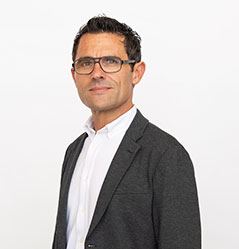Safe and inclusive, two-in-one digital technology at Nantes Métropole

For most people, information systems security is a domain reserved for IT experts. Yet information, communication and administration channels have become increasingly digital, involving everyone inside and outside the company. In the process, we’re creating greedy people (hackers eager for cyber-attacks) and excluded people (citizens uncomfortable with digital technology, victims of illiteracy). Nantes Métropole took up this issue very early on.
System security is the basis. And if there’s one theme that requires ongoing assessment and continuous improvement, it’s this one. That’s why Nantes Métropole renews its ISO 27001 certification every year with AFNOR Certification , the benchmark mark based on the standard of the same name and brandished worldwide to reassure its stakeholders. The certification audit identifies strengths and weaknesses. At a time when cyber-attacks are rife, including on local authorities and public institutions, it’s well worth the effort.
When it comes to IT security, risks are constantly evolving, and no one can rest on their laurels,” explains Francky Trichet, Vice-President of Innovation and Digital at Nantes Métropole.
Our cyber-resilience depends as much on system architecture as on the best practices of our agents.
If we want to avoid leaks and resist potential attacks, we have to play on both fronts, while keeping a certain discretion about our defense methods.”

Social, ecological, ethical: the winning triptych of responsible digital technology
In addition to information security in the strict sense of the term, Nantes Métropole is implementing a very proactive policy in terms of digital inclusion, which earned it a trophy in the AFNOR Baromètre de la performance publique 2023. Indeed, accessibility to e-services has become a question of social justice. ” This accessibility must be both technical and economic”, Francky Trichet emphasizes. Technical, with user training for the most vulnerable members of the public: getting to grips with a computer, carrying out e-demarches, detecting fake news, etc. Economically, with this coup: the local authority is using its own fiber network to offer its social housing and priority neighborhoods a box for 2.90 euros a month. The first 200 experimental homes will be 1,000 by 2024.
Responsible digital technology also means digital technology that aims for sobriety. This requires an appropriate purchasing policy. “In our local authority, 30% of equipment purchased is reconditioned, more than the legal 20%, and eco-labeling is required on new equipment. Our public procurement contracts include specific clauses on responsible digital procurement, including eco-design and accessibility for software suppliers. We optimize server energy in eco-responsible datacenters, and of course, we ensure optimal recycling of our equipment at the end of its life”, explains Francky Trichet.
Nantes was the first metropolis in France to draw up a metropolitan data charter, starting in 2019. It lays down ethical principles to govern the use of data in favor of trust and transparency, sobriety and innovation. It also prohibits any use of artificial intelligence for individual decisions concerning users of public services.